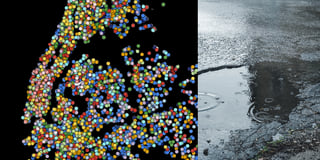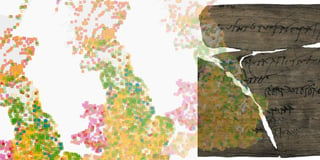Humanity deserves more humane drug policies
Hello everyone! I’m Antonio Sarcevic, part of the app team over here at Datawrapper, and today I’ll be taking a look at the topic that first got me into politics: drug prohibition.
Recently, Germany has decriminalized the possession of small quantities of cannabis for personal consumption, as changing the policies around cannabis has been a goal of the governing coalition. For some, this is a first step toward a more humane drug politics, while for others, the same thing looks like the start of a slippery slope, dooming our society as we know it.
Germany isn’t the first country to change its mind about cannabis, as other countries and states have already decriminalized or even legalized the substance in the past decade. So why are we shifting our stance on cannabis and other substances? Aren’t these laws here to protect us from the harms of illicit drug use?
This visualization makes one fact crystal clear: drugs aren’t split into legal and illegal by the harm they cause. This figure comes from a 2020 study based on the assessments of German physicians specializing in addiction, but variations have been done over and over at different times and in different countries, with only slightly varying results.
There are also researchers that question the value of such a one dimensional definition of harm. So let’s take a look at a very straightforward measure, the deaths caused by legal and illegal substances:
So, how did we get here? How come tobacco and alcohol are still regulated so liberally, while we punish people for simply possessing illicit drugs? The selection of which drugs we prohibit isn't scientific, but it isn't arbitrary either. In the U.S., for example, the first anti-drug law was an 1875 ban on “opium dens,” which targeted Chinese immigrant communities. Further prohibitionist laws were often tied to specific minority groups, like banning cocaine in 1914, which was associated with southern Black people, or cannabis in 1937, which targeted Mexican immigrants. In fact, the term "marijuana" was popularized by Harry J. Anslinger, then first commissioner of the Federal Bureau of Narcotics, to make the plant sound more exotic and dangerous. These laws have been brought all over the world through international contracts and conventions like the International Opium Convention.
But do these laws even work to prevent drug use? Well… in 2011, the newly-formed Global Commission on Drug Policy published a report claiming that “[t]he global war on drugs has failed, with devastating consequences for individuals and societies around the world,” citing rising global consumption of illicit drugs like opiates, cocaine, and cannabis. These laws criminalize, stigmatize, and discriminate against users of illicit drugs, even when they do no harm to others. Research also suggests that drug prohibition generates violence. At the same time, the black market has taken the opportunity to supply drugs to those who want them — without any health regulations or consumer rights, of course.
It's important to realize that not all drug use is equal to addiction, or inevitably leads to addiction. “Only a minority [of drug users] become problem drug users,” finds a recent literature review on the topic. The world isn’t black and white, and drugs aren’t either. We are all drug users, be it your morning coffee or prescription medicine.
We need to stop discriminating against people who use criminalized substances, as punishing every illicit drug user harms society more than the drugs themselves ever could, and disproportionately affects already-marginalized people. Punishment also doesn't help those who actually need support with their problematic drug use. Instead, we need to accept reality that people will continue to use drugs, even when faced with capital punishment.
On the other hand, decriminalization does not lead to a significant increase in drug use, as seen in Portugal, where use and possession of all drugs has been decriminalized since 2001. So if current laws aren’t based in science, and don’t prevent drug use, what kind of drug policy should we have instead?
We need to educate people about drugs, their risks, and how to be safer when they choose to consume. We need to replace persecution of all illicit drug users with more low-barrier treatment options for those who need them. At the same time, we also need to question our current beliefs and laws around legal substances like alcohol and tobacco. These drugs aren’t risk-free just because you can buy them in a store. But because of the false division into legal and illegal, they often aren’t thought of as “real drugs” with real dangers. We need a drug policy that aims to actually reduce harms, instead of increasing harms while carving into the human rights of users.
I encourage everyone to question their beliefs around drugs and how our society deals with people who use them. A good place to start is reading this piece on 75 fallacies that underpin current drug policy by social worker and drug policy expert Julian Buchanan. Thankfully, we're seeing small steps in the right direction, like the recent decriminalization of cannabis in Germany, and organizations like the Drug Policy Alliance, Transform Drug Policy Foundation, Law Enforcement Against Prohibition, Schildower Kreis and many more are working toward more humane drug policies everywhere.
Thanks for reading this half-Weekly Chart half-rant post 😅 If you have any comments or questions, feel free to leave them below! Tune in next Thursday for another Weekly Chart, this time by Alex Käßner from the design team!



